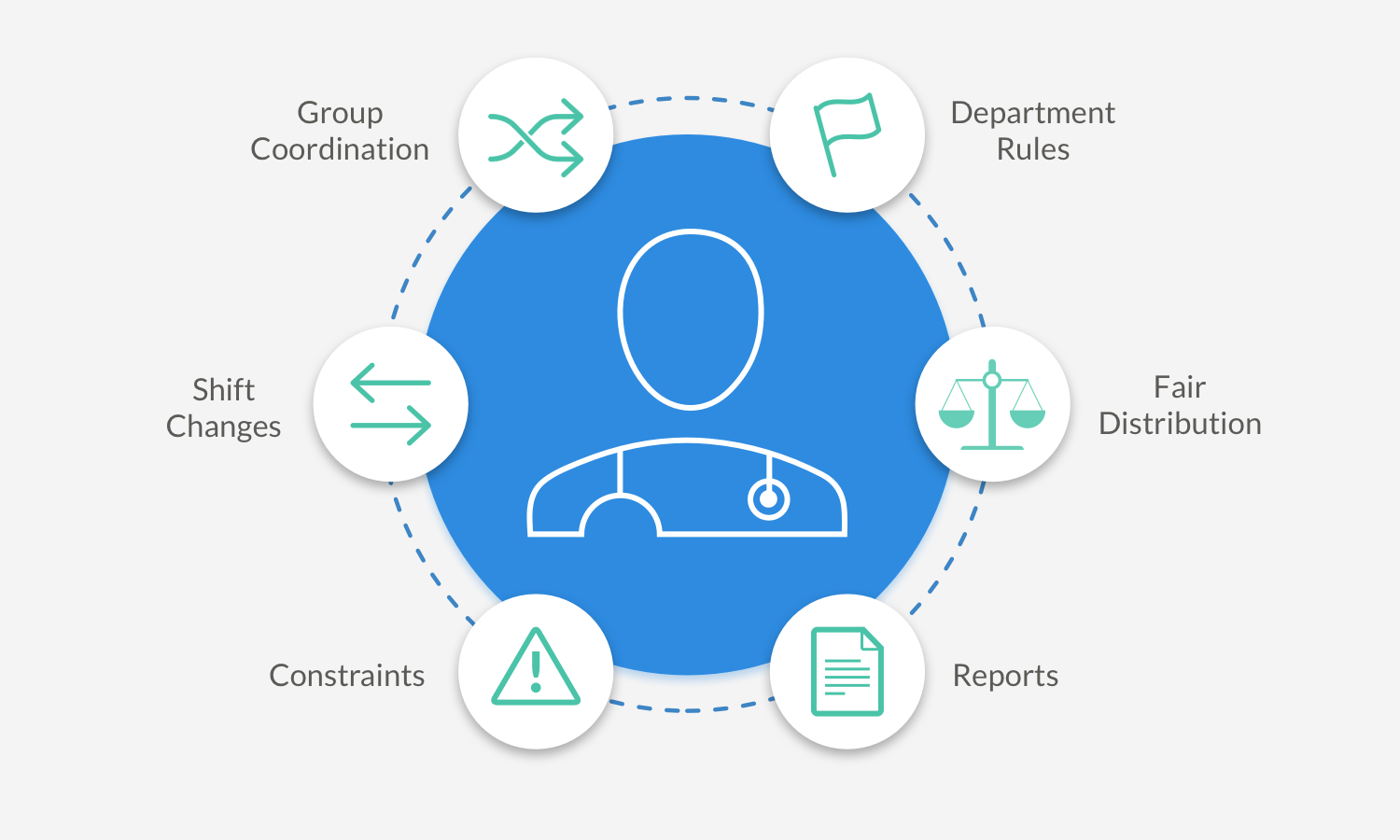
With the many elements to deal with when planning a schedule, it can quickly become overwhelming. Physician schedules, more often than not, are planned and maintained by physicians themselves, thus adding on to their already hectic workload and most often, it isn’t a paid task. Using outdated methods that don’t actually ease the task or shorten the schedule creation time should be abandoned as automated methods do exist whose main purpose is to eliminate these.
Finding the right solution, however, can be a little tricky. Are your needs basic or complex? What features should you look for? What will actually help you save time?
With the abundance of technology surrounding healthcare professionals in hospitals, scheduling software shouldn’t be something you add on to your tech-load, but rather, a helpful tool you can use to better coordinate with your team and save you time.

In order to ensure your scheduling solution is designed for your needs, here are some elements to consider when adopting a scheduling tool:
- Physician-centric design
- Flexibility and personalization
- Fair shift distribution and non-availability dashboard
- Interoperability and integration
- Real-time information
- Various plans
- Secure messaging
These elements, along with more information about the benefits of scheduling solutions for physician groups, are presented in the How to Select a Physician Scheduling Platform whitepaper.
Thousands of physicians have abandoned their manual scheduling ways and they aren’t looking back!
